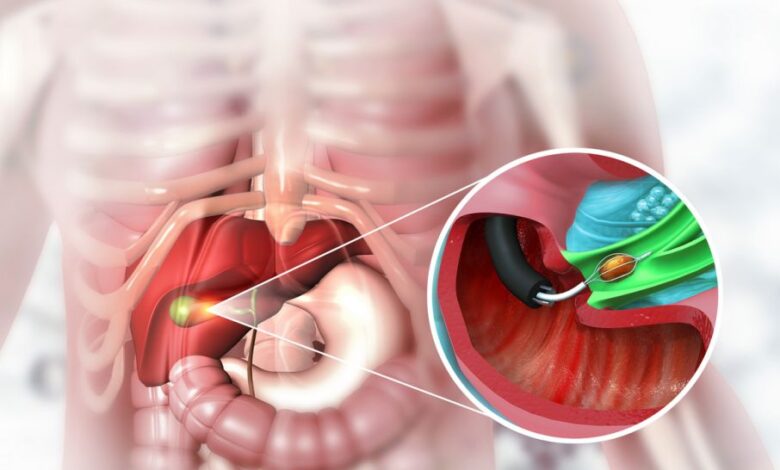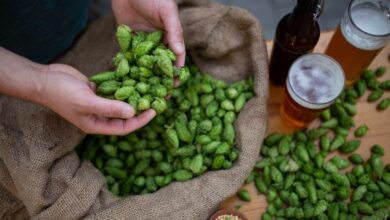Malabsorption of Nutrients After Gallbladder Removal – Is it Dangerous?

When gallstones are present in the gallbladder, it is likely that, after trying various medication treatments or experiencing a gallbladder attack, surgical removal of the gallbladder, known as cholecystectomy, may be necessary. However, is life without this organ dangerous and still fulfilling?
What is the Function of the Gallbladder?
The gallbladder is a small, pouch-like organ located beneath the liver. It stores bile, a fluid produced by the liver that aids in the digestion of fats. Through the bile ducts, bile moves from the liver to the gallbladder. The bile ducts form a series of channels.
Additionally, the gallbladder performs essential tasks, including:
- Facilitating the absorption of fat-soluble antioxidants and vitamins A, E, D, and K.
- Assisting in the removal of cholesterol from the body.
- Aiding the body in eliminating toxins broken down by the liver.
Role of Bile in Fat Digestion
Bile is stored in the gallbladder, and over time, it becomes concentrated, making it more effective in breaking down fats. The gallbladder releases bile into the digestive system when needed.
What are Gallstones?
Gallstones are small, hard formations, usually composed of cholesterol, that develop in the gallbladder. When the chemical composition of the bile in the gallbladder is disrupted, gallstones form. In most cases, elevated cholesterol levels in bile lead to stone formation.
While these stones often cause no symptoms and require no treatment, when a gallstone enters a duct within the gallbladder, it can cause sudden, intense pain, known as biliary colic.
For some people, complications arise due to gallstones, such as persistent pain in the area, jaundice, or fever, indicating inflammation of the gallbladder (cholecystitis). This may lead to the need for cholecystectomy.
The moment comes when the gallbladder is removed. No more gallbladder, no more stones, no more pain, but the body can no longer function in the same way. The body cannot emulsify fats, absorb fat-soluble essential antioxidants, vitamins A, E, D, and K, and eliminate toxins.
Can We Survive Without the Gallbladder?
Yes, we can survive without the gallbladder, but we are exposed to the risk of developing a fatty liver, experiencing frequent digestion issues, and suffering from a deficiency of essential fatty acids and fat-soluble nutrients.
The liver continues to produce bile, but without the gallbladder to store or concentrate it, bile is continually released directly into the intestines. If we consume fatty foods, we may not be able to release a sufficient amount of bile, leading to poorly absorbed fats. This may result in symptoms like diarrhea, bloating, nausea, and poor digestion.
Due to fat malabsorption, the absorption of fat-soluble vitamins, such as vitamins D, E, A, and K, becomes challenging. Vegetables contain many fat-soluble antioxidants, such as lycopene, lutein, and carotenoids—all of which are fats. In the absence of sufficient bile, these nutrients are also poorly absorbed, along with essential fatty acids, including omega-3 and omega-6.
What is the Solution, and How Should We Eat After Cholecystectomy?
Truthfully, there is no specific diet after gallbladder removal. Each patient’s body adapts to the changes and digestion differently. A diet suitable for one person may not work for another in the same condition.
However, the following advice may help us feel better and avoid diarrhea:
- Reduce Fat Intake:
- Avoid high-fat foods, fried, and fatty foods for the first one to two weeks after surgery.
- Choose fat-free or low-fat foods. Low-fat foods contain no more than 3 grams of fat per serving.
- Increase Fiber Intake:
- Add soluble fiber to the diet, such as oats and barley, to promote regular bowel movements. Gradually increase fiber intake to avoid excessive gas and cramping.
- Eat Small, Frequent Meals:
- Consuming smaller portions more frequently may aid in better bile mixing with the available bile.
It is essential to find suitable dietary supplements to replenish necessary elements daily. Limiting foods prone to exacerbate diarrhea, including dairy products, caffeine, white sugar, and artificial sweeteners, can also be beneficial.
